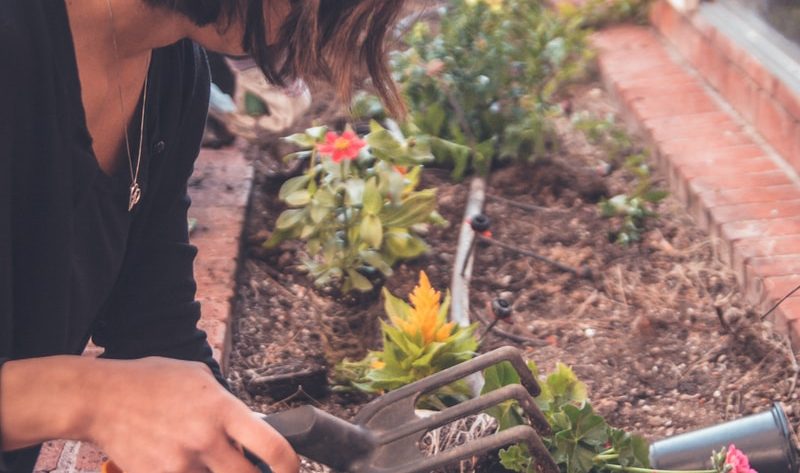In the background, the high-pitched emergency alarm blasts incessantly. My whole family is in panic. We all gather our belongings and rush to the van that’s parked outside our door. My family gathers photos, clothes, and sentimental objects. I then stuff my bag full of canned goods, as well as all the tools and weapons I have stored at the back. This was something I knew deep down. My family gets into the van and I tell them to keep all the supplies safe while I take my brother along to get supplies for our trip. After returning from a ransacked grocery store, everyone is left stranded on the porch, van-less, and without weapons. Slowly, the ground starts to shake and rumble. In desperation, I fall to my knees and let out a scream. This was when I finally woke up from my nightmare. The scream remained in my throat.
I have had this apocalyptic dream for years. Each month, I have a similar dream in which I am fleeing in a van with some treasured items and my smartest family members. We are often trying to escape a sinking New York City and outrun an enormous ocean wave. This has happened so often that I created a label: post-apocalyptic environment disaster.
I know that I am not the only one feeling anxiety about environmental issues. Each day brings new stories about our near apocalyptic reality. From the ocean being set on fire to the moon wobbling because of rising sea levels, I find myself practically hyperventilating when I tell my friends that I don’t know how I’ll ever be happy to exist if this keeps happening. Although their reactions ranged from laughters to slight distress, they were all as furious as I was. I decided to turn to Twitter to vent my frustrations. People helped me identify eco-anxiety, the correct term for my constant stress.
The current climate catastrophe has caused intense anxiety. The American Psychological Association defines it as “a persistent fear of environmental doom”. However, I still had questions: How can I manage in this anxious state and still make a difference?
I was constantly troubled by one thing: It is impossible to solve the climate crisis with single action. To support global efforts to heal the planet, there are systemic changes needed. Even though it won’t solve climate crisis, it helps to soothe my anxiety knowing that I am trying to live a life that does the most good for the planet and the people who live there, especially those living in the most vulnerable areas.
There are a few things I can do to relieve my anxiety. The first is community.
I am grateful for the many ways that I have been able to help my community, from tending the earth to working with my neighbors to getting to know the birds that sang so loudly to me throughout the pandemic. Research is one way I have done this. The cultures of the people who live in the area where I reside, as well as how they cared for the land’s plants and produce. This map has been a great help in this endeavor. These cultures are often built around respecting and sustaining their land. As a way to show love and support Mother Nature, I have been able to incorporate native practices into my daily life. This has allowed me to feel like I am contributing to the health of my communities. I am grateful to the grass, trees and soil that sustain my home.
Apart from its connection with community, nature – spending some time in it and learning more about it, as well as practicing gratitude for them – helps me to self-soothe eco-anxiety. Learning about the variety of plants in my area makes me appreciate the land more. On a practical note, I want to create a self-sustaining garden that produces fruits, vegetables and other plant life. My grandmother and aunts taught me a lot about gardening. I currently have a two-and-a-half-year-old avocado tree that brings me so much pride. I find the natural world is a great way to ground myself. Although eco-anxiety can sometimes manifest in fear of the nature’s retaliation I have been working to reclaim my relationship with nature. This includes learning survival skills such as how to build a fire, understand practical uses of herbs, practicing swimming and going on hikes. My best option to avoid harmful and unhealthy practices is to build a relationship with nature. This will allow me to return to the natural, earth-friendly lifestyle that I inherited from my ancestral cultures.
I feel more in control and comfort when confronting my fears and nightmares head-on. This includes creating a survival kit with canned food, flashlights, and other essentials for the event of a power outage or other emergency situations. Also, I have enjoyed discussing an Emergency Game Plan together with my family. I am a big movie buff, so it is easy to jump into a discussion about what to do if disaster strikes or how to communicate with one another if there are no phones or internet.
This kind of planning, regardless of my eco-anxiety, is really helpful in my everyday life. It’s a good idea to practice using GPS to get around. I have been working to improve my spatial and direction awareness in order to avoid being LOST in the apocalypse. However, it might also be useful for the next time my battery runs out. It frustrates me when the GPS tells me to head southwest. This forces me to think: Can I understand a compass? I have trouble reading a map or navigating so I’ve been using the compass app on my smartphone to try to navigate without GPS.
It is rewarding to practice navigating your life with less technology. Ask yourself this question: Can I do this by myself? Can I live without electricity? Sometimes, just by researching and trying to do something by hand makes it seem like everything will be fine. I remember making cheese at home and realizing that cheese post-apocalypse would be delicious!
I practice my vision without glasses. Because my astigmatism is very bad, I sometimes go without my glasses for a few days to learn how to function. In the environmental apocalypse. My doctor originally recommended that I not wear my glasses for all activities. My doctor recommended that I not wear my glasses for any activity. I now wear them only when absolutely necessary. Lasik is something I am considering, partly to increase my confidence in my ability to move around if I lose my vision.
While I am fully aware that individual actions alone won’t make a difference in climate change, it is possible to focus on the environment and gain control over the chaos. America is a country that produces 268million tons of waste annually, according to the 2021 report card for America’s infrastructure. Most of the products I use already have a large carbon footprint and are likely made in unethical ways. What does it mean for me to be less wasteful? What can I do to reduce waste? What can I do to limit my purchases? I am aware of the waste I create and I try to reduce it as much as possible.
I have cut down on meat consumption and am now more aware of where my produce comes from. My friends who joined local farms’ food cooperatives have inspired me. Studies show that food contributes 10% to 30% to a person’s carbon footprint, and that meat is the most carbon-intensive food group. Implementing it has been a success to incorporate minimalist practices into my day. When making new purchases, I am strategic and thoughtful. I have found that I am less inclined to buy clothing that isn’t in fashion and more inclined to invest in pieces I love. I want timeless pieces. Good, durable materials are also important to me.
Although these personal steps may not be enough to solve the problem, they have helped me manage my anxiety. It helps me share the things that help me feel better and to send love and support to anyone who cares about the well-being of our planet. Although we may not be capable of repairing this web of ecological destruction, sharing the practices that help reduce harm can make a difference in creating a change – both within ourselves and across the globe.








